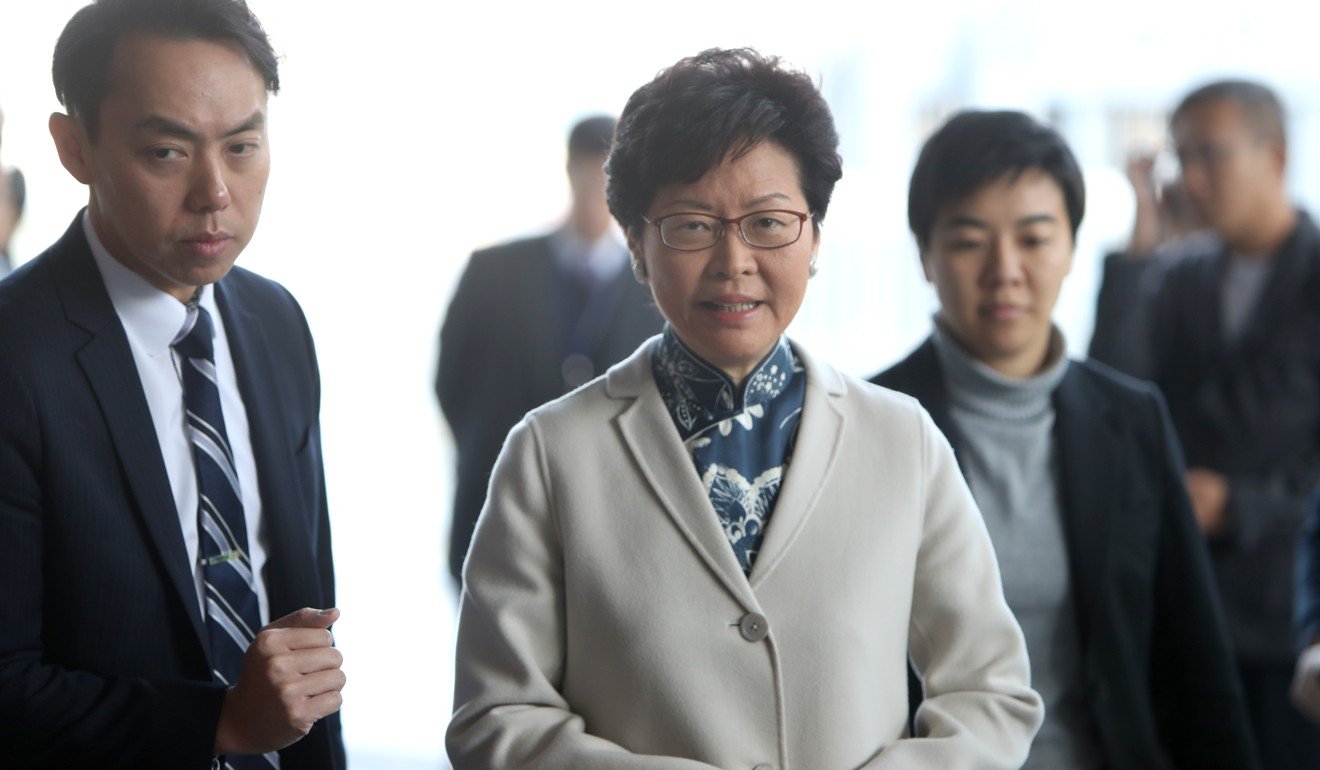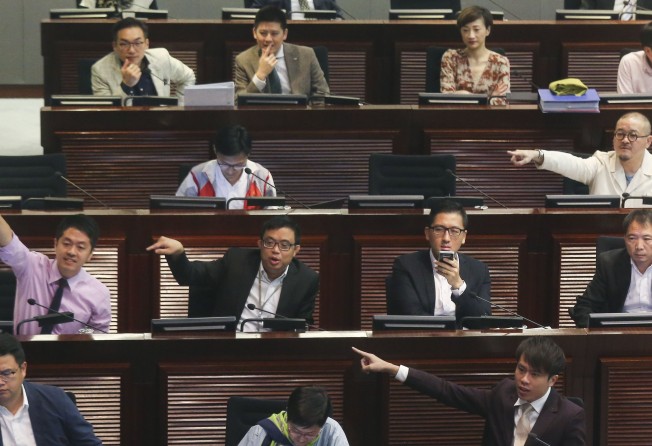
Move to end filibustering ‘reasonable’ so Legco meetings can go back to ‘normal’, says Hong Kong leader Carrie Lam
An intense debate on changes to rules of procedure in the city’s parliament, aimed at curbing filibustering, will begin on Wednesday

Hong Kong leader Carrie Lam Cheng Yuet-ngor on Tuesday said it was “reasonable” for the Legislative Council president to give lawmakers the green light to amend the body’s rule book, as she hoped that the meetings in the legislature could be “brought back to normal as soon as possible”.
The chief executive was speaking a day before Legco begins an intense debate on changes to its rules of procedure, with amendments proposed by pro-establishment lawmakers to curb the delaying tactics of pan-democrat lawmakers to block bills or motions they disagree with.
These tactics include calling for quorum counts, making lengthy speeches and tabling stacks of amendments, resulting in proceedings grinding to a halt or meetings dragging on needlessly.
“We hope that things in the Legislative Council will be brought back to normal as soon as possible,” Lam said, in a reference to how pan-democrats had in recent weeks filibustered other bills to try to defer the house rules debate and table a list of their own changes.

The pro-establishment camp is set to move 24 proposals on Wednesday to amend the rule book, with pan-democrat lawmakers unlikely to be able to block the amendments.
The pro-democracy bloc was significantly weakened after a court stripped six lawmakers of their seats for improperly taking their oaths of office after the September 2016 Legco elections
Legco president Andrew Leung Kwan-yuen had earlier allowed the pan-democrats to table 24 of their own proposals, but ruled another 14 inadmissible.
Most of the pro-establishment camp’s proposals, including a controversial one on lowering the quorum requirement from half of Legco members to 20 for certain meetings, were allowed.
On Monday, Leung also approved a series of motions from the pan-democrats to amend the other side’s proposals.
He also ordered a single debate, which he said could last 30 hours, rather than a separate debate on each proposal.
Before her weekly Executive Council meeting with policy advisers, Lam was asked by the media if the Legco president had been making the right decisions.
Citing Hong Kong’s mini-constitution, Lam said: “Under Article 72 of the Basic Law, it is the president’s responsibility … to ensure the smooth proceeding of meetings, so I respect his clear decision on this matter which has been dragging on for quite some time.”
“His decision was quite reasonable,” she added.
The government did not table any bills for the weekly Legco meeting on Wednesday, drawing criticism from the pan-democrats who claimed it was a strategy to pave the way for a debate on house rules.
But Lam rejected that accusation on Tuesday.
“There is no particular tactic or strategy, we will submit the bills and resolutions when they are ready,” Lam said.
Pro-establishment legislators have a window of opportunity to amend the rule book before the first by-election, to fill four of the six vacant seats, takes place on March 11.
Opposition lawmakers, holding 30 seats before the six were disqualified, had in recent years repeatedly called quorum bells that lasted for 15 minutes each to grind proceedings to a halt.
In 2015-16, a record high number of 596 quorum bells was recorded. Weekly council meetings were halted for a total of 115 hours that legislative year.
Eleven of the bells caused an early adjournment of the meetings, after the pro-establishment camp failed to secure a sufficient number of lawmakers in the chamber.